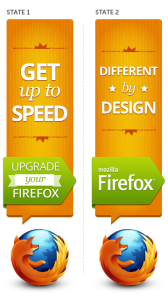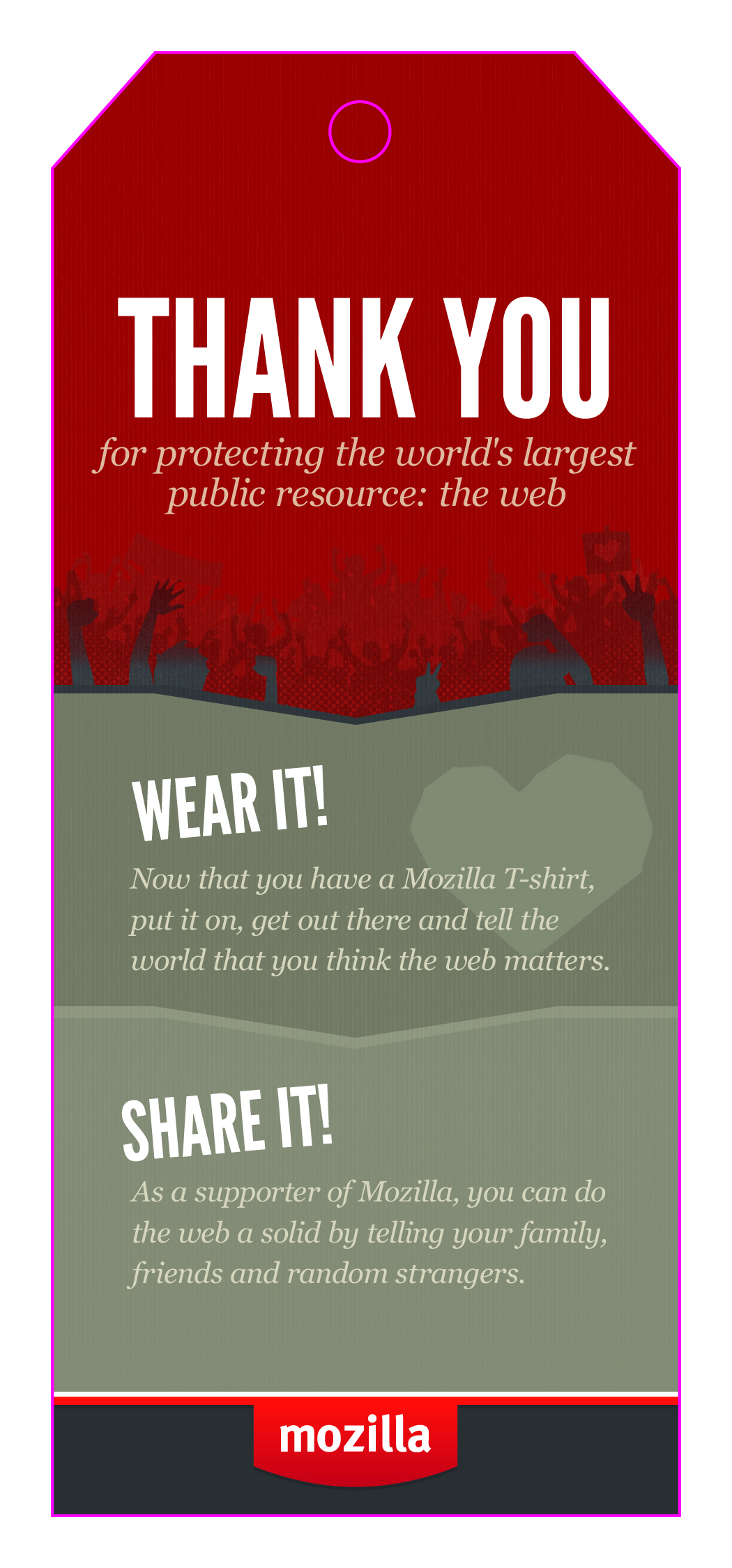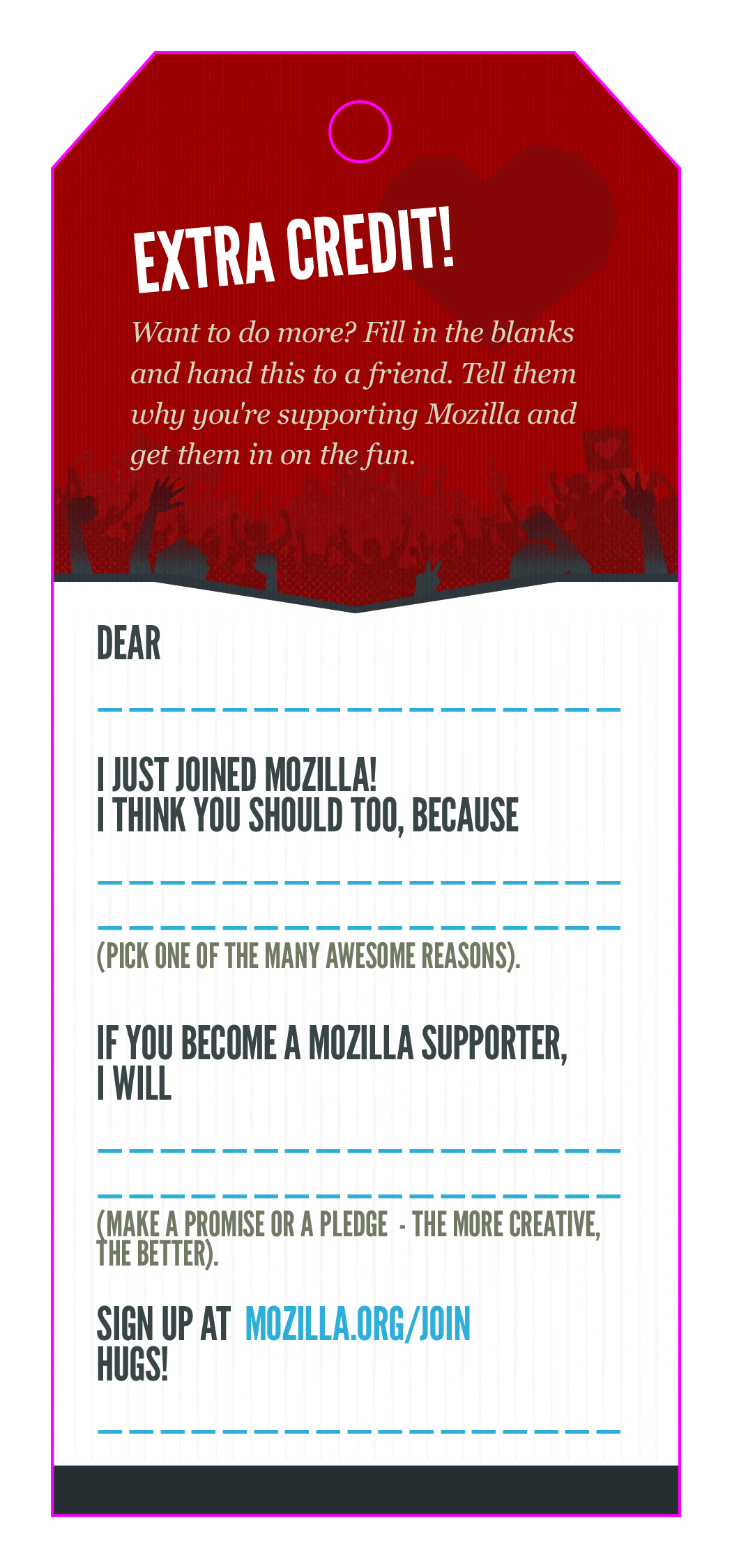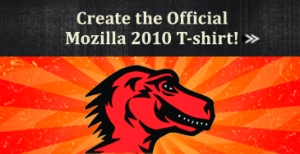As we’ve been building the Join Mozilla program and updating our fundraising infrastructure over the last year we’ve encountered a lot of challenges. Mozilla is unique among fundraising organizations in a number of ways: we care a ton about privacy; we want everyone, everywhere to be able to participate, which means localization is important; and we want to make sure users have a good experience when they interact with us, be it through our browser or when they are kind enough to support us with a donation. These are our values and the things that help Mozilla stand apart from our peers.
As a charity, we accept money from individual donors all over the world. This means dealing with payment processors and credit card companies. At its most basic level it means doing in a way that works with those values above. More specifically, it means adhering to a payment standard called the Payment Card Industry Data Security Standard (PCI as it’s known to its friends). It’s full of regulations that make sure that user credit card/payment data is handled securely. For example, if an organization wants to store or transmit credit card data over an API, it has to be PCI compliant. Why would we want to do that? PCI compliance involves a significant investment of money and staff. One-click payment processing is a start. Our previous donation experience involved a multi-click Homerian journey through PayPal. Nothing close to what’s considered a good user experience. This is why a lot of orgs look to third-party payment processing providers.
Another tool we need for looking after our donors is a CRM. Donors need to be thanked, get tax receipts and make it possible for us to maintain a relationship with them. We’re looking to have hundreds of thousands supporters of Mozilla, adding more each year. CRM software makes it possible for us to manage those relationships in a secure way.
As a bit of background, we tried to implement an open-source CRM and payment processing system in 2010. We consulted with its authors, got help from peers that use it and despite our best efforts, it failed. Amplifying the fail factor, this also took a really long time and caused a huge amount of delay. It was very frustrating for everyone involved who was trying hard to make this system work. We needed it to work as we weren’t even doing what gets taught in Fundraising 101. So we threw that system away and started over.
This time we decided to start working with a service provider. While there are a lot of fundraising platforms out there, we have a pretty specific set of needs: PCI compliance, multi-lingual support for localization and a willingness to meet our significant legal, data, privacy and security requirements.
When you look at that list of requirements, the list of options gets pretty short and in fact brought us to one specific company; Blue State Digital. They’ve met our requirements and they’re experienced with dealing with values-driven orgs. We’ve been working with them since September and it’s been a big improvement for us. We started accepting donations via the BSD system on November 12 and the increase in our conversion rates has been notable. For example, comparing December 2009 and 2010 there’s a 312% increase in donations (full disclosure, BSD wasn’t the only variable, as we also had a fundraising campaign in market, so that helped too). Having a system where we can track donations in real time, steward donors and run reports is like living in a new world in terms of donor management and reporting for restricted donations.
It’s not all sunshine and puppies mind you. Localization is hard with this system, requiring a lot of manual work instead of the process we use for the rest of Mozilla. It’s frustrating for localizers in particular, but we are working on it and are hoping to add more locales to the system with a steady cadence. If you’re interested in the particulars of the challenges join our forum or check out the wiki page.
We are also looking for other front-end options for the future of the program as there are many more features we want to add, like a store. But any provider we’re looking for will have to meet the criteria set out above.
As always, we’re looking for ways to do this better. If you know of any storefront solutions that might meet our needs, drop me a line or leave a comment. If you find any bugs with our donation pages or have an idea of how we can make this better, you can file them under the product – websites, component – donate.mozilla.org.




 We’re continuing the
We’re continuing the 


